Welcome to the world of ‘Middle Child Syndrome’, where birth order psychology meets the complex world of family dynamics. Imagine this: sandwiched between the attention-seeking elder sibling and a thoroughly pampered youngest one, is the middle child, who is often overlooked, and misunderstood, yet brimming with endless complexities.
If you are a middle child, you know exactly how it feels. It’s like you’re stuck between sky-high parental expectations and complex sibling rivalry.
This article is going to talk in-depth about the middle child syndrome, what is middle child syndrome and some of its most interesting characteristics.
Let’s first try to understand what is middle child syndrome.
Related: 12 Reasons Why The Middle Child Is The Best Child
What Is Middle Child Syndrome?
Middle child syndrome is a phenomenon where the middle child tends to feel overlooked and ignored compared to their siblings. This leads them to think they are less special or important, compared to their elder and younger siblings.
This manifests in your personality leading you to feel insecure, independent, and seeking validation. Even though it’s not a diagnosable condition, middle child syndrome, sheds light on how birth order can impact family dynamics and personality.
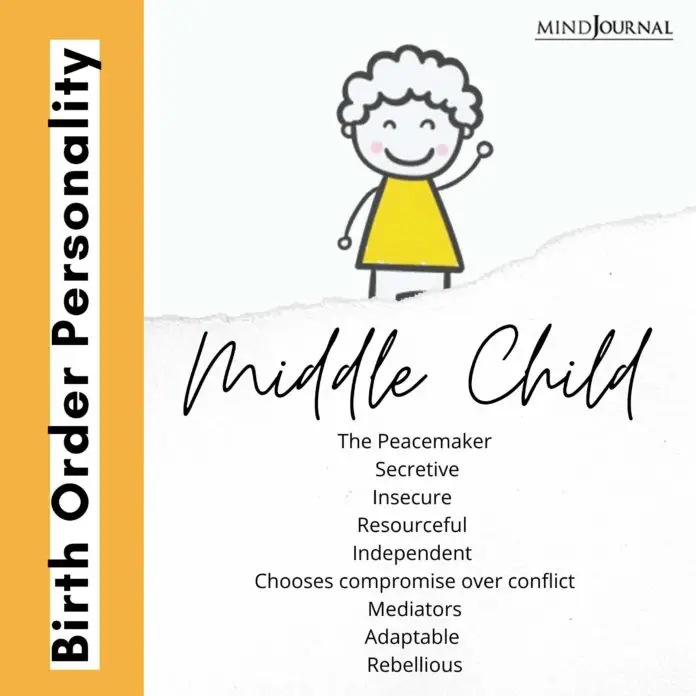
Now that we have talked about what is middle child syndrome, one question still remains – is middle child syndrome real? Let’s find out, shall we?
Is Middle Child Syndrome Real?
Middle child syndrome is often talked about, yet experts can’t agree if it’s real or not. Some research points to birth order affecting who we are, but other studies don’t see much proof for middle child syndrome as a distinct psychological condition.
Factors like individual experiences and family dynamics, play a huge role in shaping a child’s personality and mindset, which makes it hard to isolate the effects of birth order alone.
Still, there are many people out there who do feel ignored and less important as middle children. This shows that this concept is indeed relevant from a personal viewpoint, even if its medical validation is subject to interpretation.
Let’s now talk about some of the major middle child syndrome characteristics.
10 Characteristics Of Middle Child Syndrome
1. You feel ignored and overlooked.
Have you ever had the feeling that you are non-existent in a sea of really loud voices? This is exactly how it feels to be a middle child. Since your elder and younger siblings get all the attention, as a middle child, you often feel as if you are invisible.
Sometimes, be it family dinners or school plays, your accomplishments and opinions might appear rather unimportant compared to those of your brothers and sisters, which makes you wish for more recognition and attention.
2. You show attention-seeking tendencies.
One of the major middle child syndrome characteristics is that you are like an undercover attention-seeker. Even if you feel a little bit sidelined or overlooked, you find new ways of attracting everyone’s affection.
Chances are you are the class clown who is always cracking jokes to make everyone laugh, or you are the star player who scores the winning goal in a crucial football match. It’s your way of saying “Hey! I am here too!”
You just want your moment to shine and deep down inside, you want people to acknowledge you and give you the recognition you deserve.
Related: Understanding The Spiritual Significance Of Your Birth Order
3. You are always trying to keep the peace.
Most middle children end up being unofficial referees of their families. Caught between your elder and younger siblings, you always end up playing the role of Switzerland.
Whether it’s breaking up fights over who gets the TV remote or taking a call on who gets to have the last slice of pizza, you’re always the one smoothing things out and trying to keep the peace.
It’s not easy playing the role of mediator, however, someone has to do it, right? And who better than the middle child to bring a little peace and quiet to the family?
4. You are very independent and self-reliant.
As one of the major signs of middle child syndrome, have you ever noticed how you are seemingly an expert at doing everything by yourself? It’s likely because you don’t get as much attention from your parents, leading you to be self-reliant.
From making your own school lunch to handling personal problems by yourself, you don’t really like taking the help of others. It’s not that you don’t appreciate assistance, but you’re accustomed to figuring things out alone.
Interestingly, middle child syndrome in adults shows up like this. This habit of independence follows you into your adult life, making you a dependable friend who always knows what they’re doing.
5. You are flexible.
Being a middle child means you’ve learned to be adaptable from a very young age, like a chameleon. Stuck in the center of siblings with distinct personalities, you’ve mastered the art of going with the flow.
You smoothly deal with an older sibling’s bossy nature and the younger one’s endless energy. You’re pretty much an adaptable ninja, always ready to switch up your approach without a hitch.
6. You have strong and loyal friendships in your life.
One of the biggest middle child syndrome characteristics is that you’re amazing at making friends. You often feel a little overlooked at home, so you lean on your friends a lot.
You love sharing secrets with your friends, telling stories, or simply spending time together; you pour a lot into these friendships. Your friends become a refuge from the noisy household drama.
Being a middle child, you have always understood how precious good friends are, from when you were little kids having playdates to when you grow up and have heart-to-hearts with your close buddies.
Related: 10 Different Types Of Siblings And Why They Are Important For A Happy Life
7. You are extremely creative and imaginative.
People with middle child syndrome are often the most creative ones. Without all eyes on you, you find unique ways of expressing yourself. It’s not unusual to find you sketching amazing drawings or coming up with clever fixes for some common issues.
You’re a pro at story-telling, and building epic pillow forts. You really show that a little imagination can transform dull moments into something amazing. After all, who needs people watching you every second when you’ve got a whole universe in your head just waiting to get out?
8. You suffer from low self-esteem.
Another one of the common middle child syndrome characteristics is that you have low self-esteem. Being the middle child can sometimes be rough, and you might feel like you’re invisible next to your brothers or sisters.
This can make you wonder if you matter just as much, or if you’re really as good as the rest of your family. You sometimes feel unsure about your talents and question yourself whether you’ll ever shine. These nagging doubts tend to stick around, slowly eating away at your self-esteem and confidence.
9. You struggle with your sense of identity.
Sometimes you might feel like an understudy in your own family’s story; middle children often understand this feeling. You’re stuck somewhere between not being the commanding older sibling and the free-spirited youngest sibling.
Imagine trying to find where you fit in a puzzle that seems to have perfect spots for everyone but you. Middle child syndrome in adults can also manifest like this, where you tend to spend a lot of your time digging deep into who you are, looking for what makes you unique among your brothers and sisters.
10. You have a rebellious streak in you.
Middle children tend to have a rebellious streak in them. You often feel ignored and pushed to the side, and that’s why you decide to mix things up a little. You test the limits, you’re late on purpose, or sometimes you even cause some harmless trouble.
It’s your way of getting some attention, and the limelight on yourself; you rebel because sometimes you’re simply asking for an equal chance to shine.
Related: Only Child Syndrome: A Closer Look At The World Of An Only Child
Takeaway
Middle child syndrome highlights the struggles that go unnoticed for people who feel stuck between their other siblings. For them, it’s all about feeling invisible but still trying to figure out how to get noticed and adapt accordingly.
When we get what this is all about, we start to really appreciate how tough and adaptable middle kids have to be within their family circles.
Do you have middle child syndrome? Or are you the eldest or youngest child in the family? Do let us know your thoughts in the comments down below!
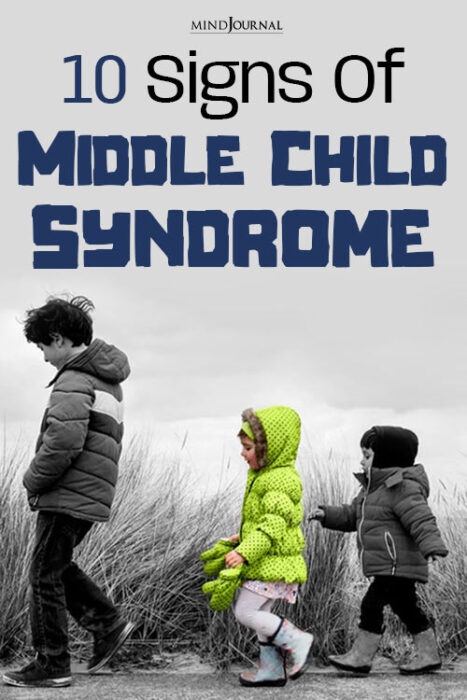
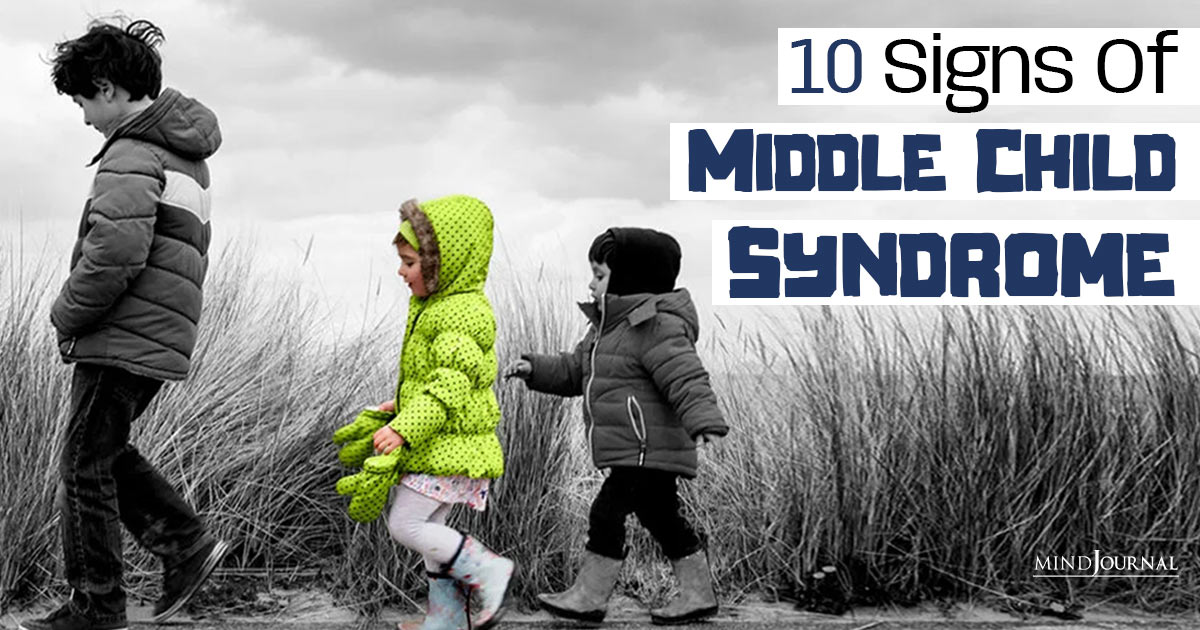
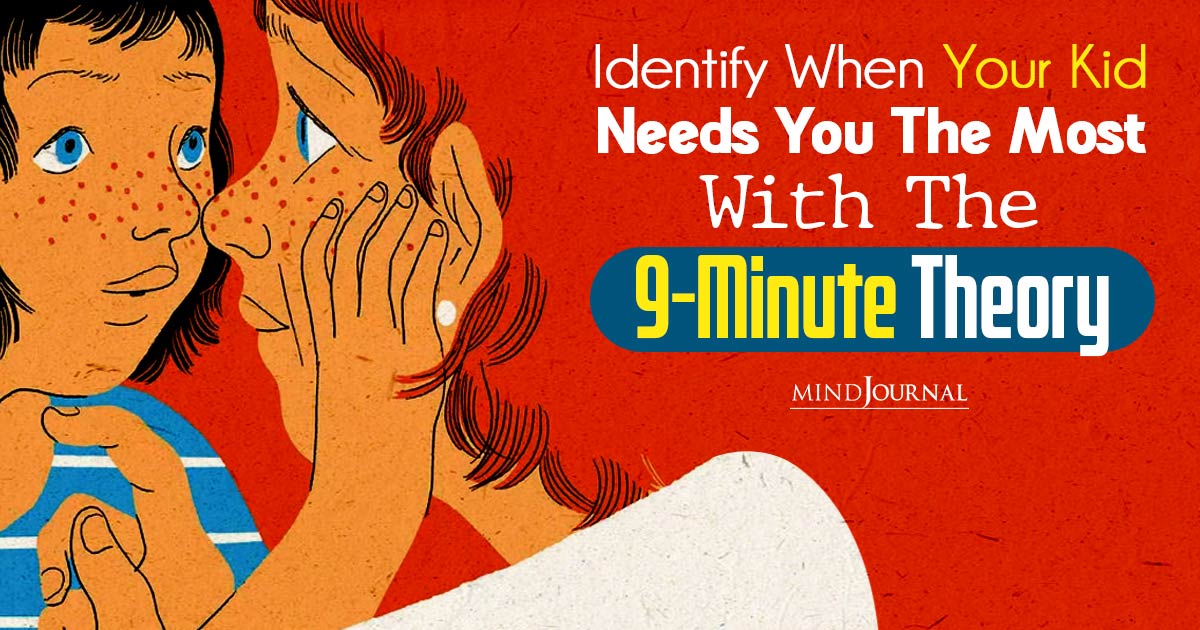
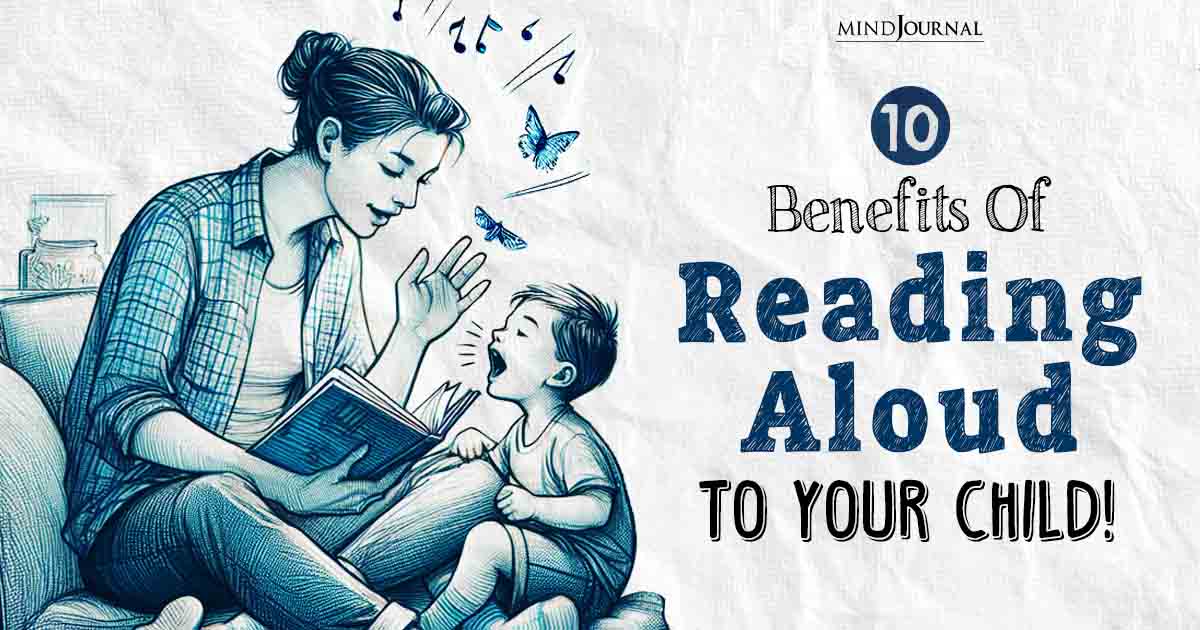
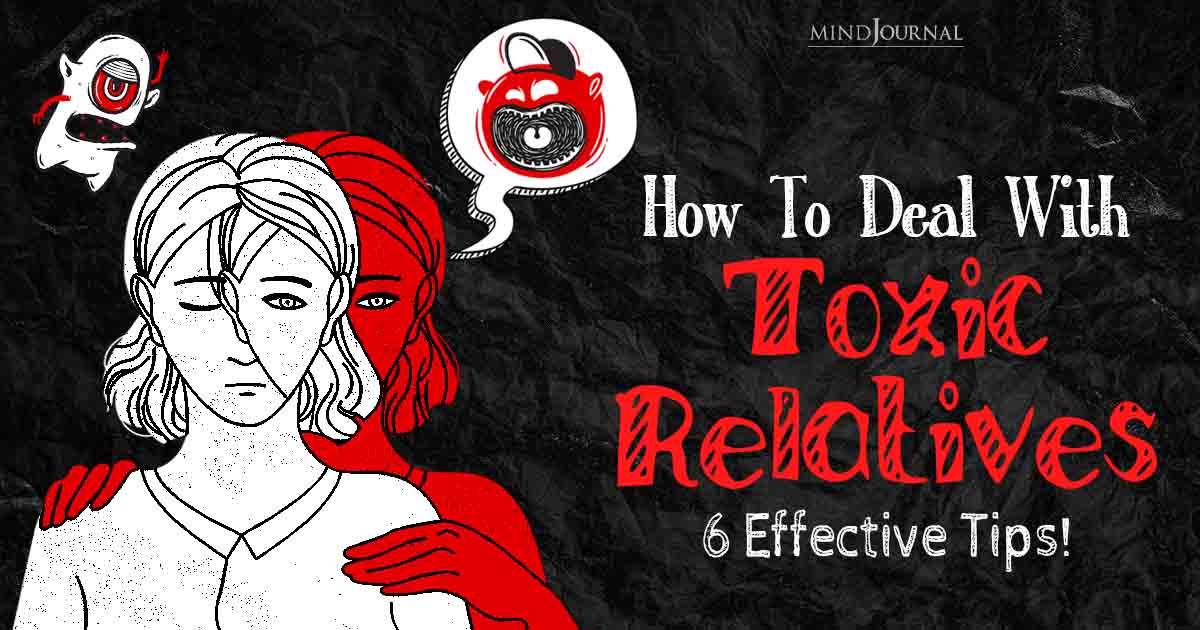
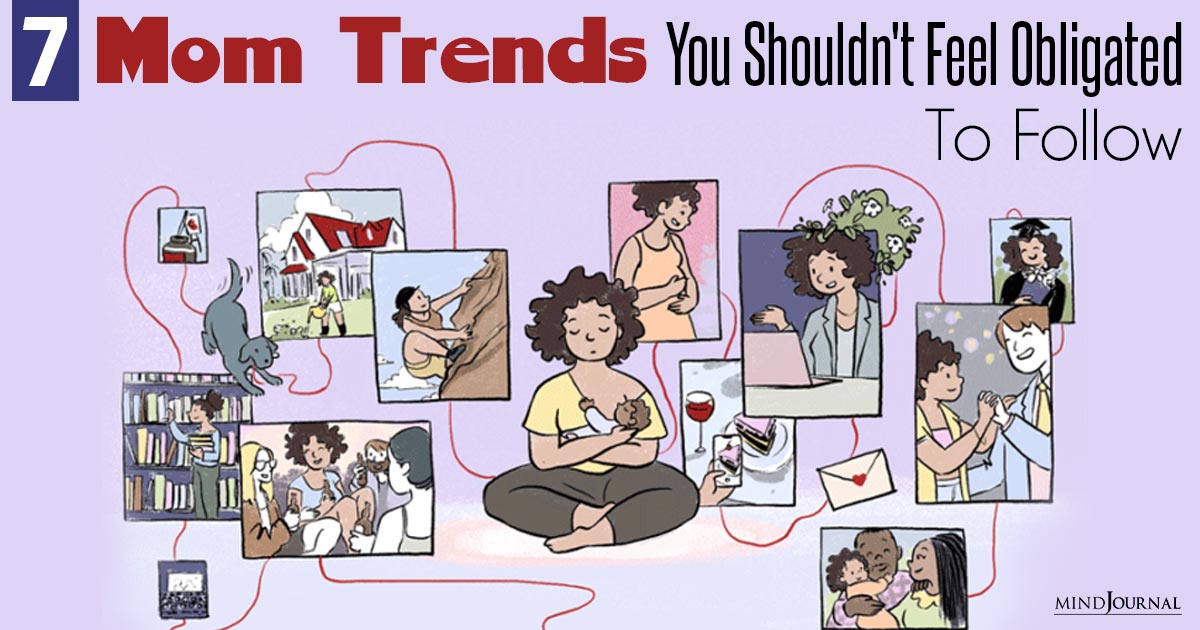
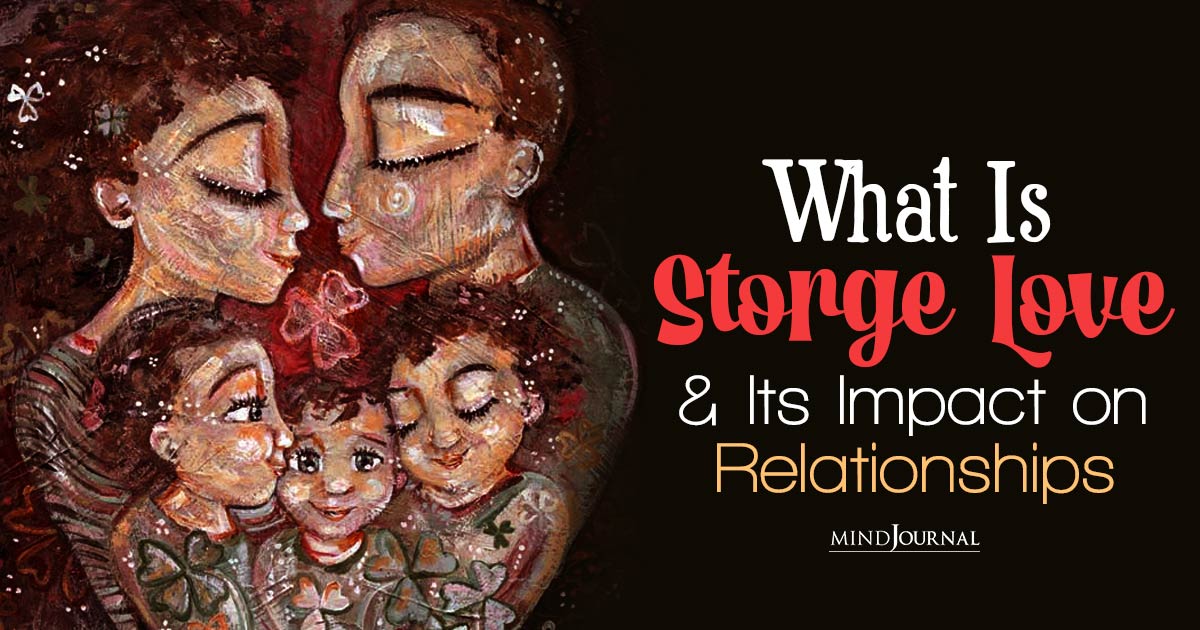
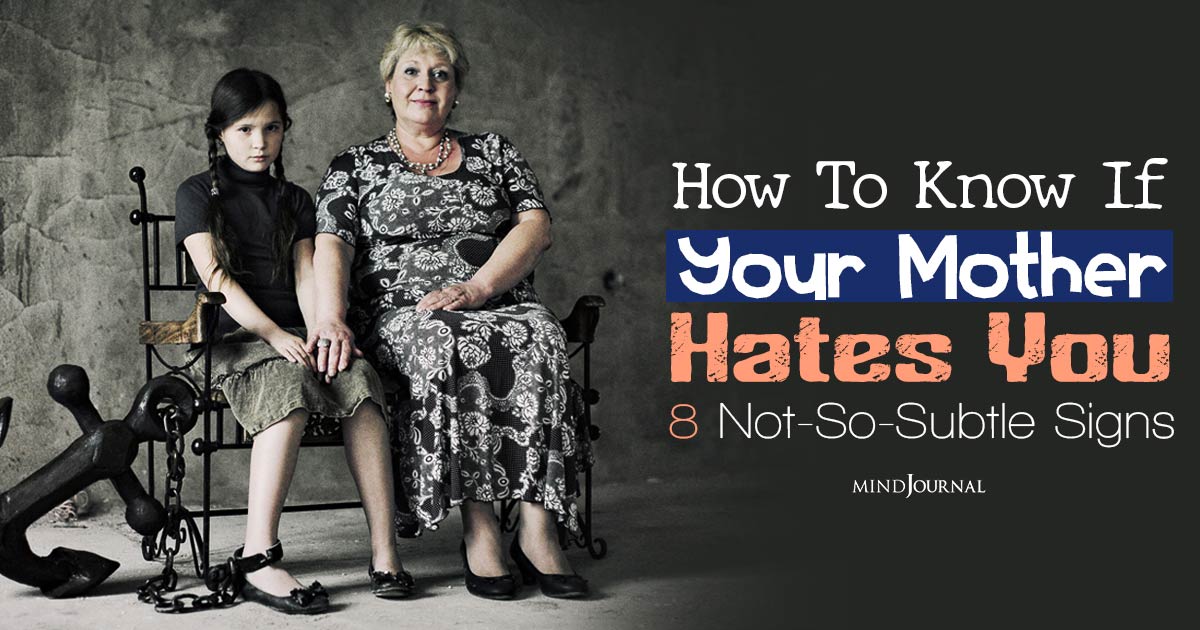

Leave a Reply
You must be logged in to post a comment.